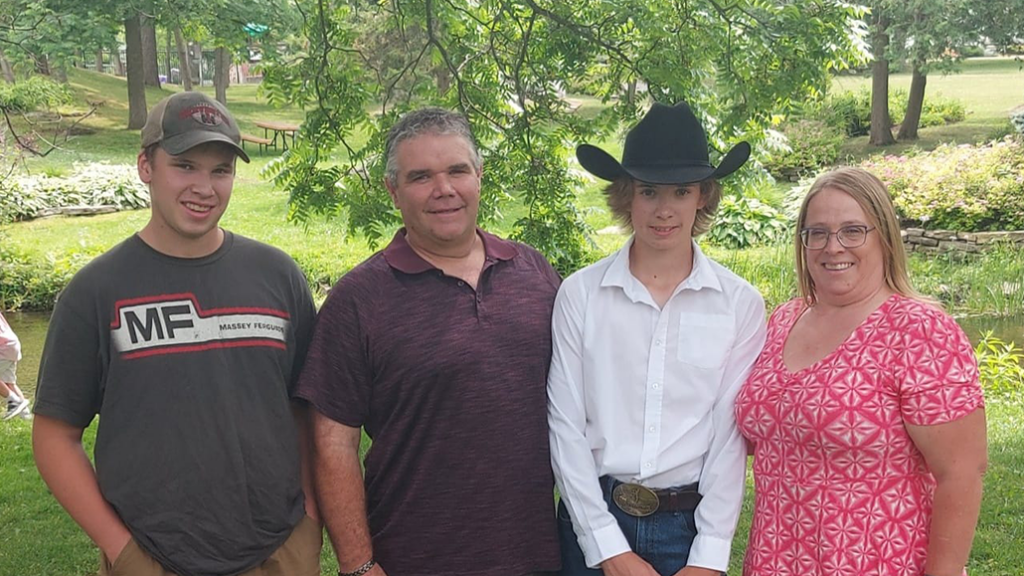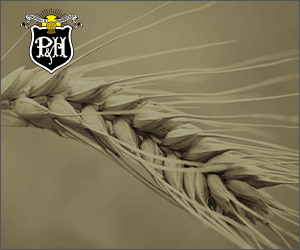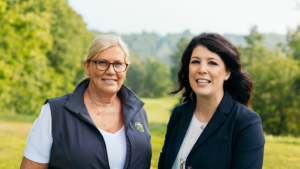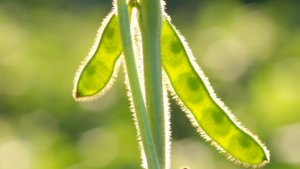Leadership matters
MENTORSHIP AND OPPORTUNITY KEY TO WOMEN’S SUCCESS

‘MY MOMMY IS a Farmer!’, exclaims the title of a children’s book by Sandi Brock, who, together with her husband, Mark, operates Shepherd Creek Farms near Staffa, Ontario.
The storybook — told from a child’s perspective — challenges the notion in popular culture that farmers are, almost exclusively, men.
In fact, if you google ‘images of Canadian farmers’, you’ll get several pages of results of photos of mostly men standing out in their grain fields or in front of big tractors.
CANADIAN WOMEN FARM TOO!
Despite what a Google search might imply, women are actively involved in farm businesses, and their numbers are growing. According to the 2021 Census of Agriculture, women now account for 30.4 per cent of farm operators, increasing from 28.7 per cent in 2016 — which means almost one in three Canadian farmers is a woman. In the grains and oilseed industry, 25.6 per cent of operators are women.
And Ontario leads the charge — one in four Canadian women running a farm business is located in the province, with 20,895 women taking the lead.
The census also reports that women are high adopters of technology, leading to increased efficiencies and environmental sustainability. Women reported increased adaption of technology like geographic information systems (GIS) mapping — a 72.3 per cent increase from 2016. And the number of women reporting adoption of automated steering guidance systems (auto-steer) increased by 45 per cent.
And farms led by women are successful: the largest net increase in women farm operators from 2016 to 2021 were from farms with revenues over $2 million — from 1,385 in 2016 to 2,580 in 2021. That’s an increase of 85 per cent.
INDUSTRY REPRESENTATION
While women’s participation in primary agriculture production is significant — and increasing — that does not always translate to the board table in agricultural organizations. According to a 2015 study by the Canadian Agricultural Human Resource Council (CAHRC), only eight of the 65 agricultural organizations surveyed had a woman as chair; and only 28 per cent had a least one woman on their board.
Since 2015, there has been a notable change, with women taking on more leadership roles across the sector; for the first time, both the federal and provincial ministers of agriculture — Marie-Claude Bibeau and Ontario’s Lisa Thompson — are women, and women are taking the lead of provincial and national organizations like Ontario Federation of Agriculture president Peggy Brekveld, Ontario Pork vice-chair Tara Terpstra, and Farm Products Marketing Commission chair Amy Cronin. Former Canadian Federation of Agriculture president, Mary Robinson, has recently been named vice president of the World Farmers’ Organization.
BARRIERS TO PARTICIPATION
Despite more visibility in top leadership roles, women still experience barriers to participation in agriculture organizations, with the CAHRC study citing balancing careers and family obligations, an ‘old boys club’ mentality, and a lack of role models as reasons for the gap in representation at the board table.
For Barb Keith, a beef, goat, cash crop, and custom farm operator from Perth, Ontario, the realities of managing a farm, a part-time off-farm job, and being the primary caregiver for her two sons, Logan and Lucas, meant she had to make a hard decision about running for a position on a provincial agriculture board.
“I just couldn’t see how I could make it all work,” says Keith, who anticipates one of her sons will need major surgery this year which will require several months of recovery. Keith’s husband, Don Badour, is also a director for Beef Farmers of Ontario, which means he is often away from home or busy with board meetings. “Having an off-farm job makes it harder to join commodity boards,” she adds.
EQUITY, DIVERSITY, AND INCLUSION
In recent years, agriculture organizations from across the sector have engaged in equity, diversity, and inclusion (EDI) training and programming to help better understand how to be inclusive and welcoming of traditionally underrepresented people, including women.
Grain Farmers of Ontario’s Women’s Grain Symposium, an annual event held in November, gives women in the grain and oilseed industry the opportunity to network, develop leadership skills, and engage in professional development. Among the goals of the event, together with the Grains in Action program, which provides young farmers and agri-food professionals with an overview of the entire grain value chain, is to build a pipeline of interested, enthusiastic, and committed leaders who will contribute at the District level or as future Board members. The programs have been successful: in 2023, 24 women were elected as Delegates or Alternates (up from 19 in 2022), and two women were elected to Grain Farmers of Ontario’s Board of Directors.
MENTORSHIP AND OPPORTUNITY
Leaders in the grain and oilseed industry have some advice for women who want to use their skills, knowledge, and expertise to contribute to the industry at a local or provincial level.
“You don’t need to start big to be involved,” says Lauren Benoit, a Delegate from District 8 (Huron). “Show up to a meeting, get to know a few of the delegates and directors, then go from there. Once you’ve dipped your toes in, you can branch out and find the opportunities that are right for you.”
“Don’t be afraid to invest in yourself to help round out your skill sets and your competencies to make sure that you are able to ‘show up’ at your best,” says Jennifer Doelman, a Delegate from District 13 (Prince Edward, Lennox, Addington, Frontenac, Lanark, Leeds, Grenville, Renfrew, Ottawa). “This can be training, connecting with mentors and coaches, or even just starting small and working in volunteer roles on projects with leaders you admire and respect. Practice makes perfect — leadership is a skill that one never stops being able to develop.”
“First and foremost, know that you have incredible value to bring to this industry, and the way you see the world is a viewpoint we need more of,” says Victoria Berry, manager of communications at Grain Farmers of Ontario. “Many women work in male-dominated fields and know how to help others navigate those spaces. Many of you have juggled home lives, family management and business management. But, it’s just not as easy as knowing you are talented, great leaders. It often also takes working with a mentor on how to present yourself, how to find confidence, how to network and be a strong leader. I think finding a supportive group of professional women in agriculture and building a trusted mentor relationship with them is a great way to really start on a leadership path.”
In August 2023, Grain Farmers of Ontario will be highlighting many of the women leaders in the grain and oilseed industry. Visit www.OntarioGrainFarmer.ca or follow @GrainFarmerMag on Twitter to learn more about their paths to leadership and their advice for women who want to take their leadership opportunities to the next level. •


























